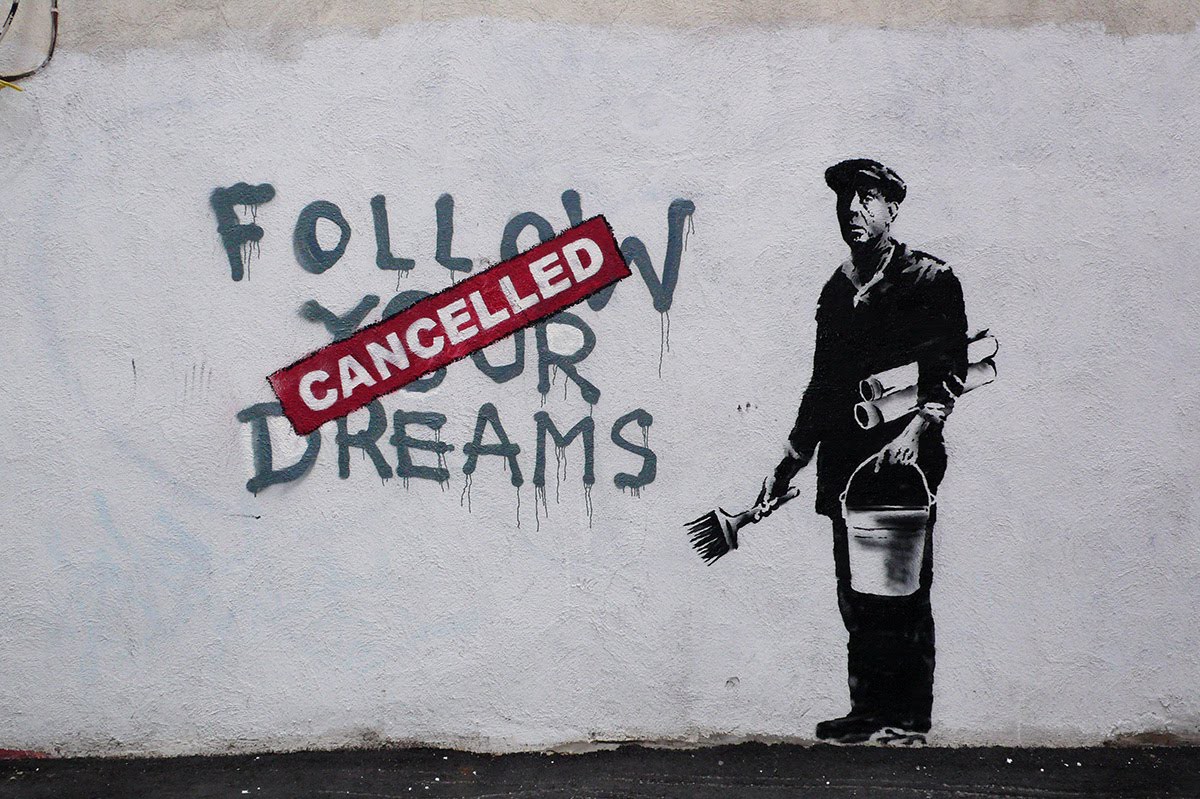Over the past few decades, the group has become the corporate model for accomplishing work, but the perception of leadership has not changed much; they have been (and are still) seen as powerful individuals who form and direct those groups. Even as late as the mid-20thcentury, companies commonly employed the authoritarian model of management which requires employees to meekly and compliantly follow their leaders. By the turn of the century, authoritarian leadership gradually was being replaced with partner relationships between leaders and their subordinates. In transformational business models, which are common today, the leaders’ success depends on their ability to delegate responsibilities and propose exciting visions that appeal to their subordinates. What counts is communication and the ability to see potential in team members while maintaining an egalitarian flow of ideas among co-workers. Today’s leaders inspire and motivate others by embodying in their actions a commitment and passion for their ideas.
Still, organizations have adhered to a hierarchical management model that put leaders at the top, in command of direct reports. This small circle of executives makes all the key decisions, throws ideas around, lets them clash, and makes choices that set the course for the entire organization. The intellectual capacities of the members of these circles can affect the performance of hundreds of employees, making the difference between success and failure in their daily activities. Many aspects of this model persist to this day, even in organizations whose leaders are no longer authoritarian. And even the companies that have purged themselves of authoritarian leanings may still need to grapple with leader competencies – specifically their ability (or inability) to deal with a world of accelerating technological, market, and psychological change.
Requirements in a volatile and rapid world
The two words that best describe the basic characteristics of modern markets are “volatile”and “rapid.” That applies to trends, consumer behaviors, means of production, business models and consumption patterns. Such an environment challenges the competencies of all leaders and their immediate associates. Decisions tend to become dated almost the instance they’re made. Therefore, in the long run, hierarchies and traditional competency-based roles will not be able to meet the challenges that arise in the world. Indeed, the only way to make decisions in this volatile and rapid environment is to take key decision-making beyond the narrow circle of leaders. Considering the incredible acceleration of change, the most impactful and beneficial decisions may well be those made on the fringes of the organizations, in those areas closest and most conspicuously influenced by customers – the key players in today’s economy.
Customers are empowered by the today’s technologies, and that has made them champions of change. In addition, through their preferences, behaviors, and purchase decisions, customers are de factoplayers in an organization’s decision networks. When one adds self-learning machines into the equation, leaders, and the people they lead, increasingly are losing their grip on decision-making. Today, machines (not leaders) order raw materials to supply production lines (based on production schedules), forecast sales, requisition products for storage (using sales estimates based on customer behaviors) and design services (to meet customer preferences).
And, meanwhile, the leaders do… what?
The power of collective leadership
I believe the relationships between leaders, teams, and customers will change considerably, and rapidly, in the nearest future to meet the demands of this new era. The concept of leadership itself will evolve radically and lose its focus on the individual. Leadership will no longer be measured by heroic decisions made and actions taken by individuals who rely on prescribed competencies. After a historical reign of individual leaders valued for their strength and personalities, we are in for an age of collective leadership, conceived as a developing relationship among multiple collaborating individuals and personalities who complement one another. Furthermore, no longer viewed as a specific role, leadership will be viewed as a process. This transformation is described in the remarkable study “Future Trends in Leadership Development” published by the Center for Creative Leadership.
What will this process look like? To explain the concept, management experts give the example of a daunting challenge, a situation that slips out of control or moves beyond an organization’s usual frame of reference. The transition from individual to process-based leadership may, for instance, involve mobilizing people to face the challenge together. In the process, leaders act as moderators, building teams to ease the way an organization adapts to new realities. The leader only sets the general direction for the team. The event provides an opportunity for successive leaders to step forward and offer their competencies, the knowledge and leadership needed to regain control. Specific team leaders would assume their roles mostly in an ad hoc manner through seeking to resolve the problem. I have already written about this in the context of network organizations, such as Google previously on my blog.
Process-based leadership eliminates the authority and rule of the individual. Instead, it creates networks of people who deal with specific situations as they occur. The leadership programs adopted by organizations should focus on learning how such networks arise, what principles they follow and how to effectively promote their emergence and function within them. Such programs would also help leaders from viewed by their teams as an elite, removed cadre within the organization blocking not advancing change. As David Altman, Vice President-Research, Innovation & Product Development at the Center for Creative Leadership puts it: “Industry needs to ask itself how leadership development became so elitist. The world’s challenges are big enough now that we need to think about how we can democratize the development of leadership, take it back to the masses – to the base and middle of the socio-economic pyramid, not only the peak.”
Duty now for the future
The new leadership paradigm should be conceived as a continuous and collective process taking place within a network of employees and managers. The organization’s thinking would change from “Who are our leaders?” to “What conditions does the organization need to meet for leadership to effectively strengthen emerging networks and relationships?” This model calls for senior executives to enable networks (both their emergence and operational capabilities) and identify the leaders in their ranks that can respond to the organization’s current needs. In this process, individually-focused leadership of the old type becomes ephemeral and transient. The lines between leaders and followers, trainees, co-workers and performers become less significant. The model can be metaphorically compared to a proliferation of neural networks and interconnections that make the brain smarter. The groups of individuals who coalesce into networks with specific managerial capacities would build a culture of shared leadership and enable their organization to better adapt to new environments.
This new model of management and leadership is still emerging, but I believe its adoption will accelerate as specific mechanisms take firmer root in the market. These include rapid changes in the global environment, difficulties predicting the future, tightening competition, an increase in the number of factors that affect the success of companies and products, and constantly changing customer needs. In such a rapidly shifting environment, new leadership programs would produce the most radical and ingenious solutions. And even if their only outcome is debate, the debate is worth starting and sustaining at all levels and stages of management.
. . .
Works cited
Nick Petrie, White Paper – Future Trends in Leadership Development, SparksGRP/Center for Creative Leadership, link, 2018.
Pierre Gurdjian, Thomas Halbeisen, and Kevin Lane, Why leadership-development programs fail, McKinsey Global Institute, link, 2016.
Nick Petrie, Future Trends in Leadership Development, Center for Creative Leadership, link, 2016.
. . .
Related articles
– Reflections on ethical leadership
– Automation will not destroy all jobs
– Uncertainty has its upside. Leadership in digital economy
– Surviving in the digital age, future-proofing your business










Zoeba Jones
I found your article both fascinating and frightening in equal measure!! We can only hope that the ethical debate remains high on the global agenda with a clear dialogue redefining war crimes (both human and AI driven) and culpability.
Zidan78
Nice
TomCat
Fully agree. As long as one owns the connection to the consumer and successfully protects it, you’re in good shape.
Thanks for sharing!
Norbert Biedrzycki
Real reasons for technology disruptions. So true 🙂
SimonMcD
Absolutely true Norbert Biedrzycki – In almost all cases listed above, and many others, the companies or industries that tried to avoid change, keep the status quo and manifest their market position or monopoly made room for disruption. Even here in Africa. The Hospitality and Tourism Industry is overdue for disruption but most non-africans don’t even see the opportunity and the existing businesses are happy to keep no longer sustainable business models in place, to the absolute disadvantage of the destination and its business and people. It is high time to change how African destinations do business and gain back control on their visibility and distribution. It is a no-go to further give away 60-80% of the profit to overseas middlemen, not contributing to the destination.
Zoeba Jones
With great power exists great responsibility and dilemmas. Why at all is said here ‘WE will’ ‘for YOU’? While should be ‘WE will’ ‘for US’. Why to exclude someone from deciding about him/herself?
TonyHor
It’s time to shred the societal contract with these malthusian tech oligopolies who want to control and brainwash society with climate indoctrination.
Tom Jonezz
Thank you Norbert
Tom299
Nice read
tom lee
Those who control what technology is used by the organization or who gets the latest computers and software has significant power, and the person who used to be the ‘IT Manager’ may now be the ‘Chief Information Officer’. Having the latest technology can also be a status symbol, thereby giving the holder social power in the way they can show themselves to be influential and clever.
Adam Spark Two
Organizations have hierarchies, departments, teams and other structures, often each with its own rules as well as the rules that govern the action within the organization as a whole. Many people do not know all of these rules, which makes them a source of power for those who care to take time to learn their detail.
Power can also be gained from quoting rules that do not exist or misquoting rules by overstating or understating their meaning.
Zoeba Jones
I like the concept, but as a society we need to step up and hold these giants accountable. Can’t be taxpayers’ responsibility to monitor this maze. Airbnb needs to enforce compliance or be fined in the same way a normal hotel would.
Then we have real innovation. I’m sure it would still work, but grow more slowly, and we would avoid a race to the bottom in safety/labour rights/environmental standards/tax compliance and more
John Accural
In today’s global economy, the humanities are essential since we deal with a wide variety of cultures, political systems, economies and religions. In business we always said: Forewarned is forearmed.
Mac McFisher
Customers are most important, not leaders, nor organisation
Jack23
Thank you and all the best
Jack666
Disruptive organisations are not so rigid where it goes to their internat processes and structures. Like founders of Facebook and Zappos broke from established ways presumably in order to feel good about how they ran their businesses. But in doing so, they stumbled upon a number of rules which today are being studied by the heads of traditionally-managed organizations. They found that many of the tasks performed in organizations are carried out outside of formal structures.
Simon GEE
Excellent read Norbert
Norbert Biedrzycki
Thank you
Avicenna
Great article. 100%
Norbert Biedrzycki
🙂
Oscar2
True
John McLean
Hi Norbert, Excellent article that you have written. Very insightful. Have a great rest of the week.
Norbert Biedrzycki
Thank you
ZoraBora
Right, right 🙂
Karel Doomm2
The end of 2017 saw a rise in the #MeToo movement. I believe that more employers will be less tolerant of sexual harassment in the workplace and will work to deal with claims more seriously to set the tone for their organization.
Simon GEE
I believe this is the biggest one of all. Research and personal experience shows that your level of belief in your people (as their leader) will have a huge impact on their productivity and success. Little belief, little success; bigger belief, more success. What is your limit?
Adam Spark Two
Good point
TomHarber
… and leaders and companies will recognize the long-term benefit of focusing on human capital development. Taking a vested interest in helping employees thrive in all areas of their lives (not just work), will create more engagement, productivity and overall happier employees
TomHarber
Good read. Leaders are starting to recognize that every employee is an opportunity to provide the market insights into the culture, quality and standards of the organization. By leveraging social media, particularly LinkedIn, every employee can become an ambassador.
TonyHor
Good read, but leadership is the action of leading people in an organization towards achieving goals. Leaders do this by influencing employee behaviors in several ways. A leader sets a clear vision for the organization, motivates employees, guides employees through the work process and builds morale. More tough in a digital age